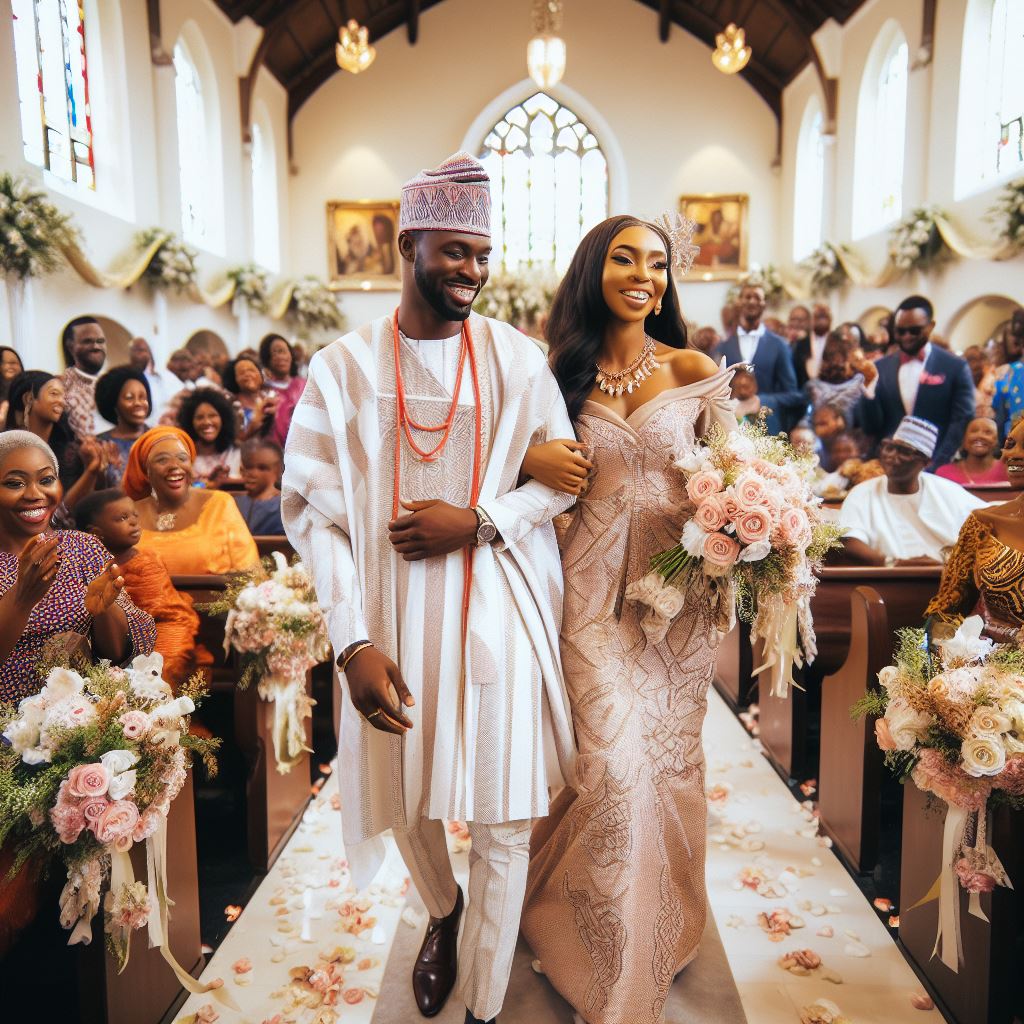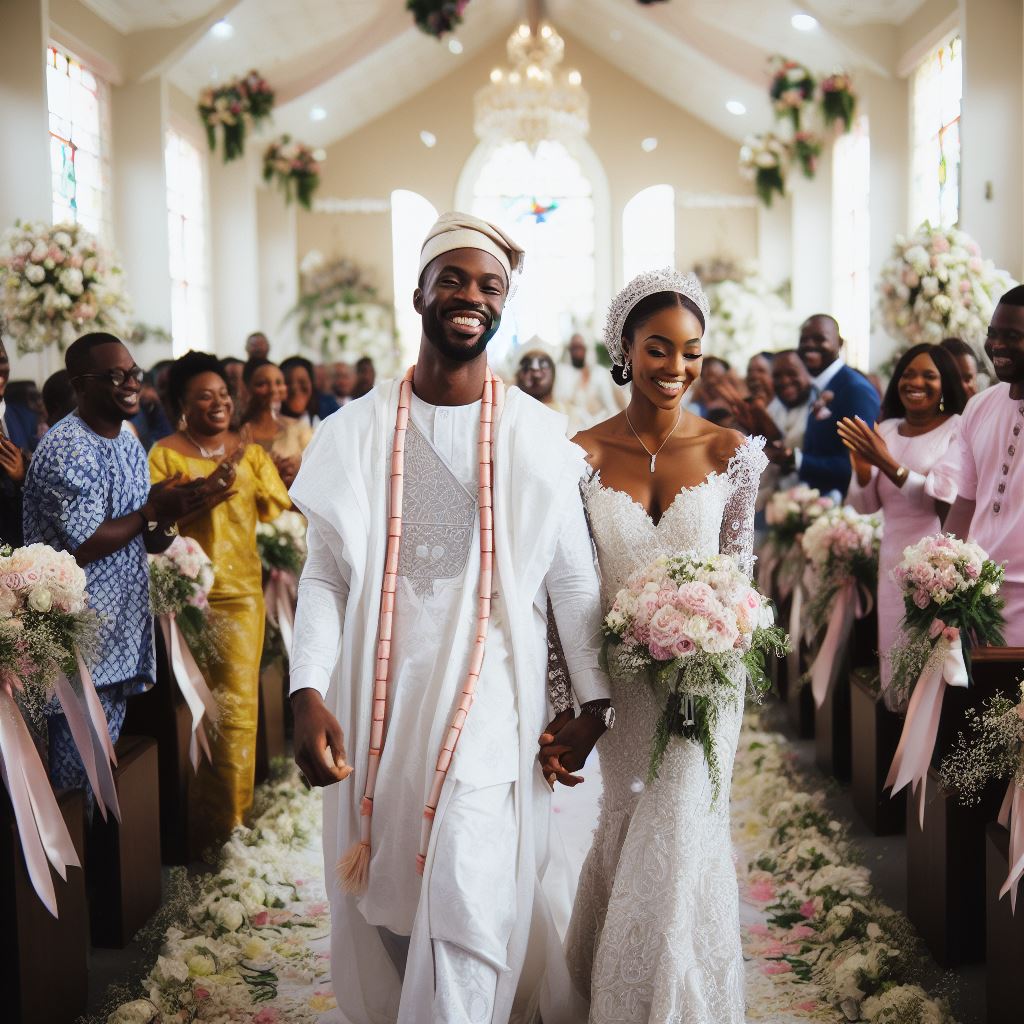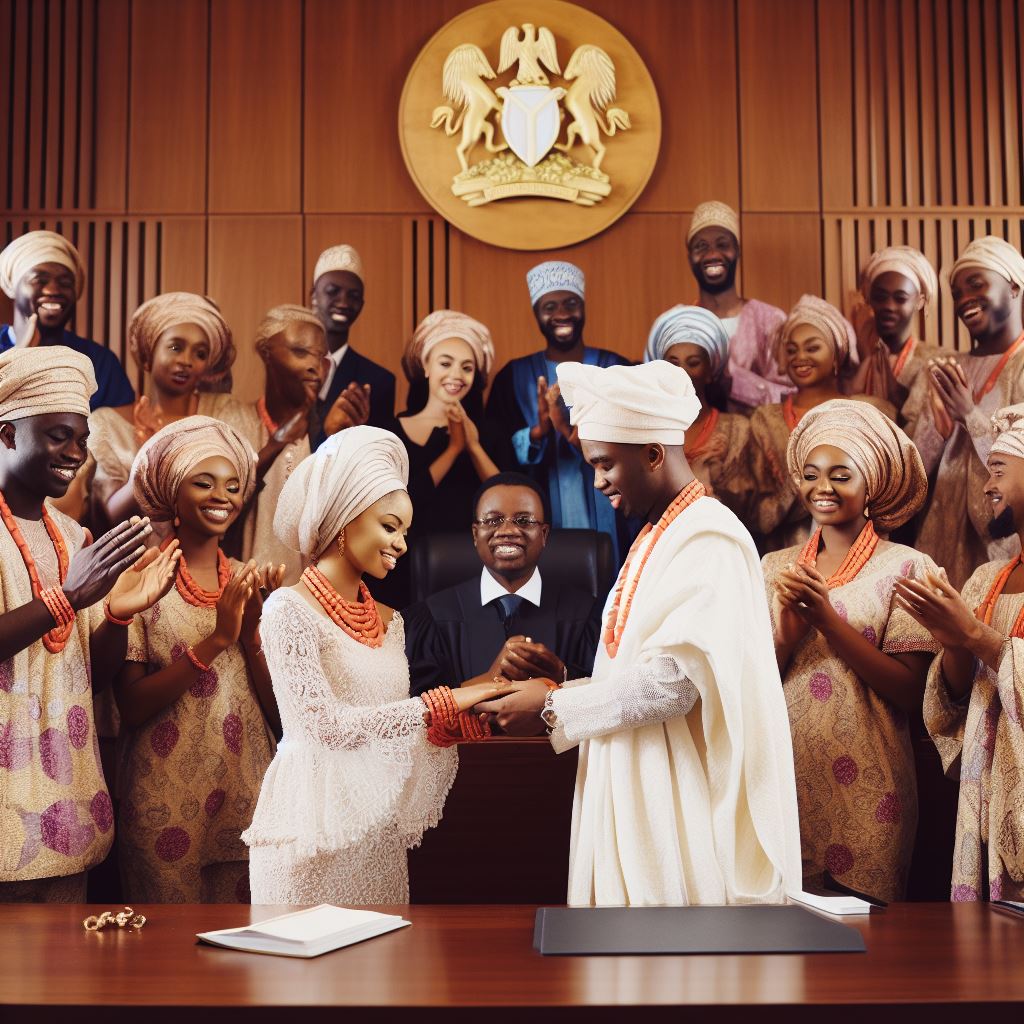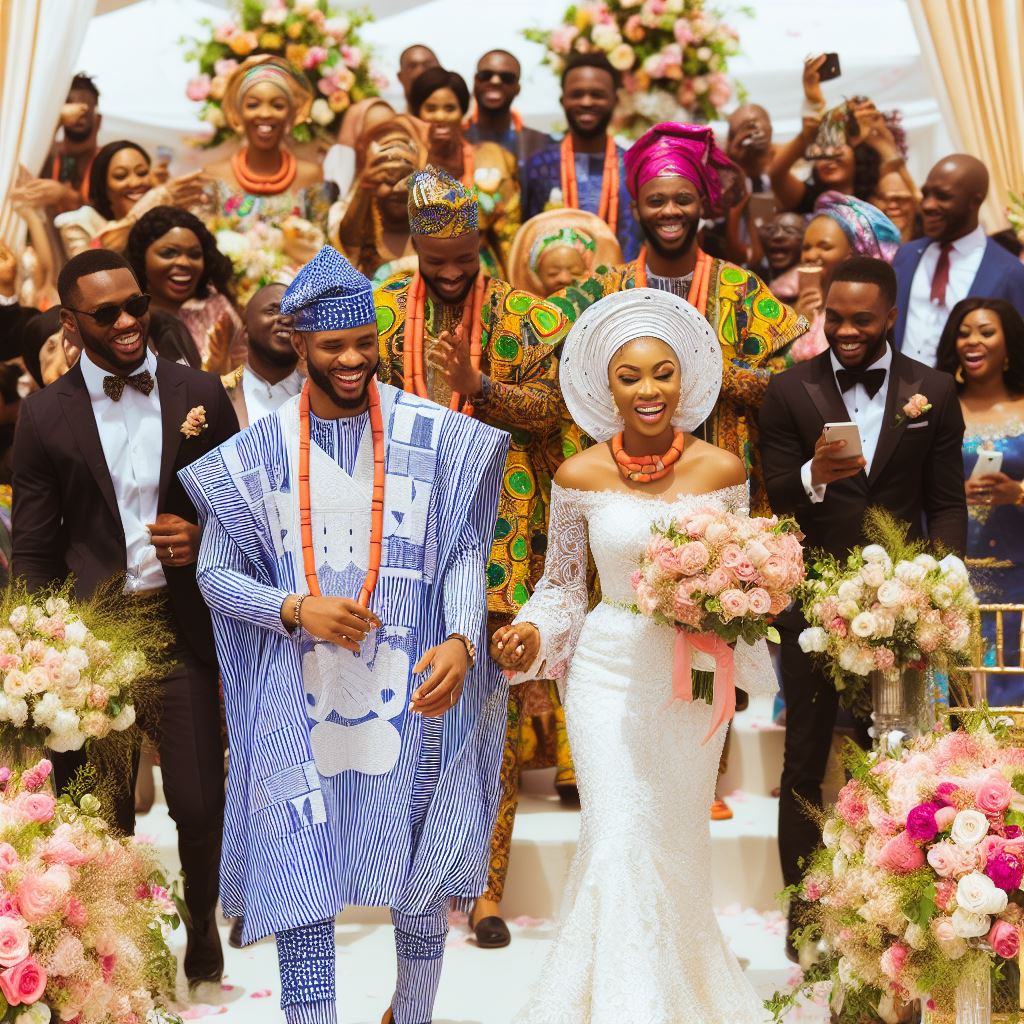Introduction
Let’s explore the Nigeria’s Traditional Marriages and The Biblical ‘Honourable’ Union
In Nigeria, traditional marriages are deeply embedded in the country’s rich cultural heritage.
These marriages are not just a union between two individuals; they are a merging of families, tribes, and communities.
The ceremony itself is a colorful and vibrant event, filled with age-old customs, rituals, and traditions.
However, it is important to also view marriage through a biblical lens.
The Bible teaches us that marriage is a sacred bond, designed by God Himself. In the book of Genesis, it is stated, “Therefore a man shall leave his father and mother and be joined to his wife, and they shall become one flesh”.
This verse underscores the divine purpose and significance of marriage.
Marriage is not to be taken lightly; it is a commitment to be cherished and honored.
The Bible encourages spouses to love, respect, and support one another.
Husbands are instructed to love their wives as Christ loved the church, and wives are commanded to submit to their husbands in love and respect.
Honoring the sacredness of marriage is crucial in both traditional Nigerian and biblical contexts.
It establishes a foundation for a strong and lasting union, promoting unity, love, and mutual respect.
Whether in the vibrant celebrations of Nigeria’s traditional marriages or in the solemnity of a church wedding, the significance of marriage remains unchanged.
It is a sacred institution that deserves our utmost respect and honor.
Read: Top 10 Marriage Counselors in Lagos: A Comprehensive Review
Overview of Nigeria’s Traditional Marriages
The diversity of cultures and traditions in Nigeria
Nigeria is a diverse country with over 250 ethnic groups, each having its unique cultural practices and traditions.
Common elements and rituals present in traditional marriages
In Nigeria, traditional marriages reflect the diversity and rich cultural heritage of the various ethnic groups present in the country.
With over 250 ethnic groups, Nigeria boasts a colorful tapestry of cultures and traditions that are expressed in their unique ways of celebrating unions.
Traditional marriages in Nigeria are deeply rooted in customs and rituals that have been passed down through generations.
Dowry payment and negotiations
Dowry payment and negotiations play a significant role in traditional marriages.
It is customary for the groom’s family to present gifts and monetary contributions to the bride’s family as a sign of appreciation and respect.
These negotiations are often seen as a way of solidifying the union and bringing the two families together.
Traditional marriage ceremonies and rituals
Traditional marriage ceremonies in Nigeria are lavish affairs, often lasting several days.
They are filled with a series of rituals, dances, and performances that showcase the cultural heritage of the couple and their families.
These ceremonies provide an opportunity for the community to come together and celebrate the union, reinforcing the importance of communal support and involvement.
Importance of family involvement and community support
Unlike modern weddings that may focus solely on the couple, traditional Nigerian marriages emphasize the role of the family and community.
Family members play active roles throughout the process, from arranging the marriage to participating in various rituals and ceremonies.
The involvement of the community ensures that the union is recognized and supported by all.
Apart from the union between the couple, traditional marriage ceremonies in Nigeria serve as a means of preserving cultural heritage and passing down customs and traditions to future generations.
These ceremonies are seen as a way of honoring ancestors and keeping their legacy alive.
Generally, Nigeria’s traditional marriages are a celebration of diversity, culture, and community.
With their rich customs and rituals, these unions reflect the deep-rooted traditions that have been passed down through generations.
The importance of family involvement and community support further emphasizes the significance of these unions within Nigerian society.
Read: Benefits of a God-Centered Marriage: Insights from Hebrews 13:4
Delve into the Subject: The Challenges of Polygamy: Balancing Love and Respect
Comparison of Traditional Marriages and Biblical Marriage
In examining the concept of traditional marriages in Nigeria and comparing it with the biblical idea of marriage as an honorable union, certain similarities and differences arise.
This section aims to clarify the biblical perspective on marriage while exploring how traditional marriages align with these principles.
Clarification of the concept of biblical marriage
The biblical perspective on marriage is rooted in the belief that it is a sacred and honorable union.
According to the Bible, marriage is not simply a legal contract, but a divine institution ordained by God.
Love, commitment, and mutual respect are fundamental elements of biblical marriage.
The Bible teaches that husbands should love their wives as Christ loved the church, and wives should submit to their husbands with love and respect.
This mutual love and respect form the foundation of a strong and healthy marriage.
The similarities between traditional and biblical marriages
Both traditional and biblical marriages value the involvement of family and community.
In Nigeria, traditional marriages are often celebrated with elaborate ceremonies involving the participation of extended family members and the community.
Similarly, biblical marriage emphasizes the importance of community support and guidance.
Commitment and lifelong partnership are highly regarded in both traditional and biblical marriages.
In traditional Nigerian culture, marriage is seen as a lifelong commitment between two individuals, with divorce being highly discouraged.
Likewise, biblical teachings emphasize the importance of staying faithful and committed to one’s spouse for a lifetime.
Essentially, while there are aspects of traditional Nigerian marriages that align with the biblical perspective on marriage, there are also cultural variations.
The biblical emphasis on love, commitment, and mutual respect can be seen in both traditional and biblical marriages.
However, it is important to recognize and celebrate the diverse cultural expressions of marriage while holding true to the biblical principles that underpin a strong and honorable union.
Read: The Role of Religion in Marriage Counseling in Nigeria
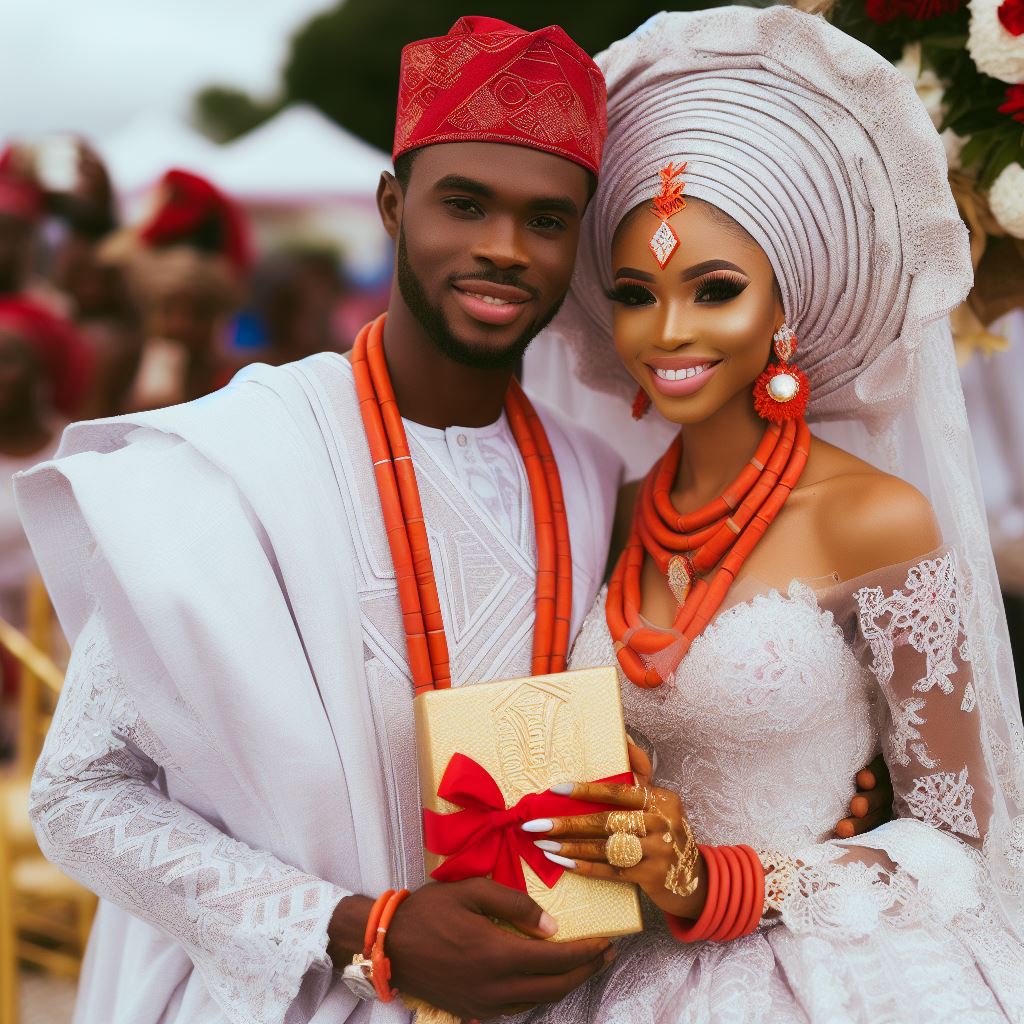
Differences between Traditional and Biblical Marriages
Acknowledgment of potential differences in specific rituals and customs
- Traditional dowry customs: In many Nigerian cultures, dowries are exchanged, which may seem materialistic and contrary to biblical principles.
- Ancestral veneration: Some traditions involve paying respects to ancestors, which may conflict with biblical teachings against idolatry.
Despite these disparities, harmonizing the sanctity of the union is possible:
- Communication: Couples can discuss these practices openly, seeking understanding and compromise.
- Prayer: Seek divine guidance for a union that respects both tradition and biblical principles.
- Community Involvement: Engage elders or religious leaders for guidance.
How biblical principles can enhance traditional marriages
- Love: Biblical teachings on love, like 1 Corinthians 13, can nurture affection and unity in traditional unions.
- Forgiveness: The concept of forgiveness in the Bible fosters reconciliation, crucial in resolving disputes in traditional marriages.
- Communication: Biblical principles encourage honest and compassionate communication, essential for healthy marriages.
- Gender Equality: Ephesians 5:21 promotes mutual submission, promoting gender equality.
- Mutual Respect: Ephesians 5:33 underscores respect, benefiting traditional unions.
Embracing these biblical principles can lead to a harmonious, enriched traditional marriage, honoring both culture and faith.
In short, acknowledging differences between traditional and biblical unions, and embracing biblical principles can strengthen the sanctity of Nigerian marriages.
This fusion allows couples to find common ground, enhance love and respect, and foster a harmonious partnership.
Read: Renewing Your Marriage Vows: When & Why in Nigeria
Conclusion
Nigeria’s traditional marriages reflect cultural traditions, while biblical teachings emphasize the importance of an honorable union.
Importance of understanding and appreciating both traditional and biblical aspects of marriage in Nigeria
This allows couples to navigate the complexities of their culture while upholding biblical principles.
Find a balance between cultural traditions and biblical principles for a successful and honorable union.
By doing so, couples can create a foundation that respects their heritage while building a strong and fulfilling relationship.
Remember, the key to a successful and honorable union is to seek wisdom from both cultural and biblical teachings.
By understanding and appreciating both, couples can create a marriage that not only honors their heritage but also aligns with their faith.
May your journey to an honorable union be filled with love, understanding, and the blessings of both traditions and biblical principles.

